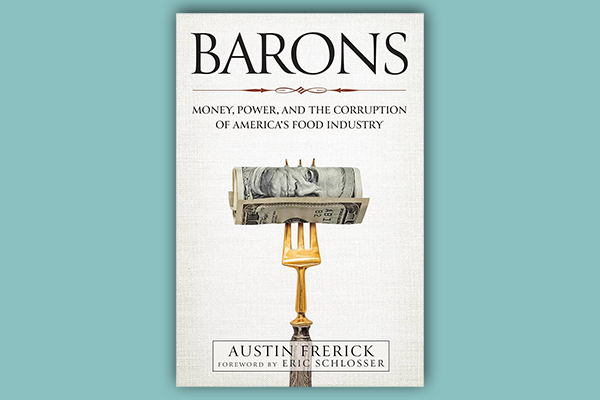FARMER AND WRITER Wendell Berry has reminded us for decades that eating is an agricultural act, a daily, sacred practice that connects us to the land and people who produce our food. But given the story Austin Frerick tells in Barons: Money, Power, and the Corruption of America’s Food Industry, it’s fair to say eating is now an industrial act.
Frerick, an expert on agricultural and antitrust policy, grew up helping his grandparents farm near Cedar Rapids, Iowa. He watched dramatic changes in the state’s landscape over time: Corn and soybeans replaced diverse crops. Pigs and cows disappeared. Family farms and the local businesses that supported them faded away, replaced by industrial-scale farms.
Frerick looked for answers and found a handful of tycoons driving these changes across the U.S. He profiles seven of them, showing how their corporate monopolies have transformed every aspect of our food system.
Jeff and Deb Hansen are the hog barons. The Iowa couple has built an empire of hog confinement facilities, warehouses in which thousands of hogs are packed until ready for slaughter. It’s more profitable for meatpackers to buy these hogs than those from family farms, which has put thousands of small farmers out of business. Frerick writes that since the Hansens started their company in 1992, “the state’s pig population has increased by more than 50 percent while the number of hog farms has declined by over 80 percent.”
Read the Full Article

